It first takes the name of the customer and after it takes the purchase amount of that customer up to ten customer. Then it prints out the name of the customer who purchases most. I have the following code:
Store cashier=new Store();
double[] purchase=new double[10];
String[] customer=new String[10];
for(int i=0;i<10;i++){
customer[i]=JOptionPane.showInputDialog("Please enter the name of the customer");
String purchaseString=JOptionPane.showInputDialog("Please enter the buying amount of the customer");
purchase[i]=Double.parseDouble(purchaseString);
cashier.addSale(customer[i],purchase[i]);
}
JOptionPane.showMessageDialog(null,"The best customer is"+cashier.nameOfBestCustomer());
break;
And this one is the Class:
public class Store {
private double[] sales;
private String[] customerNames;
private int counter;
private double maxsale;
private int index;
public Store()
{
double[] sales=new double[10];
String[] customerNames=new String[10];
}
public void addSale(String customerName, double saleAmount)
{
counter=0;
sales[counter]=saleAmount;
customerNames[counter]=customerName;
counter=counter+1;
}
public String nameOfBestCustomer(){
maxsale=sales[0];
for(int i=0;i<10;i++){
if(sales[i]>maxsale){
maxsale=sales[i];
index=i;
}
}
return customerNames[index];
}
}
However, I get "java.lang.NullPointerException: null" error. Can you please help me? Thank you.
